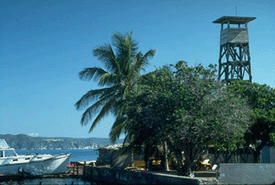|
|
|||||
|
|
Remember that if you travel to the tropics or subtropics, you may be in an area where malaria is a problem. If so, you need to know how to protect yourself and your family from this potentially deadly disease. Protect Yourself from Malaria Some simple precautions will help protect your health while traveling. CDC’s Travelers’ Health website provides detailed information on malaria risk by country and prevention information. Travelers to malaria-risk areas should:
Read more information about malaria and travel. Countries With Malaria Risk Find out whether your travel destination has a malaria risk and what specific precautions you can take to avoid malaria. Visiting Family and Friends Going “home” to visit friends and relatives? Even if you were born in a malaria-risk country, you may still get malaria if you return as a visitor because most likely you are no longer immune. Your children are also susceptible as they did not grow up with malaria exposure. Find out how you can protect yourself and your family. Cautionary Tales About Travelers’ Experiences with Malaria A traveler to Haiti on a humanitarian mission contracts severe malaria…more Mariama Jones was 19 weeks pregnant when a family crisis required that she travel to her native Sierra Leone…more On January 23, 2006, the Adisa family returned to the United States from a visit to their roots in Nigeria; little did they know...more
Page last modified : May 30, 2006 Content source: Division of Parasitic Diseases National Center for Zoonotic, Vector-Borne, and Enteric Diseases (ZVED)
|
|
||||||||||||||||||||||||||||
| Home | Policies and Regulations | Disclaimer | e-Government | FOIA | Contact Us | ||||||
|



